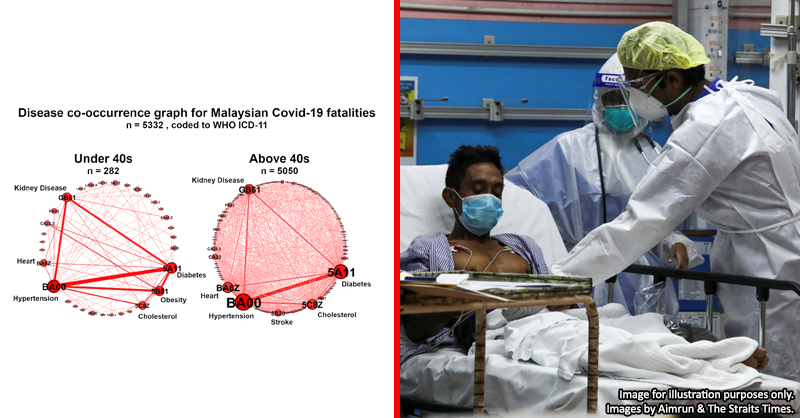Makan after midnight may be a bit harder next year, thanks to a new Health Ministry policy.

- 5.0KShares
- Facebook4.8K
- Twitter19
- LinkedIn30
- Email54
- WhatsApp128
As Malaysians, we love to eat, and our food is world-class, which makes us love them even more. You already know that. But what you probably don’t know is that we’re also apparently the fattest country in Southeast Asia.
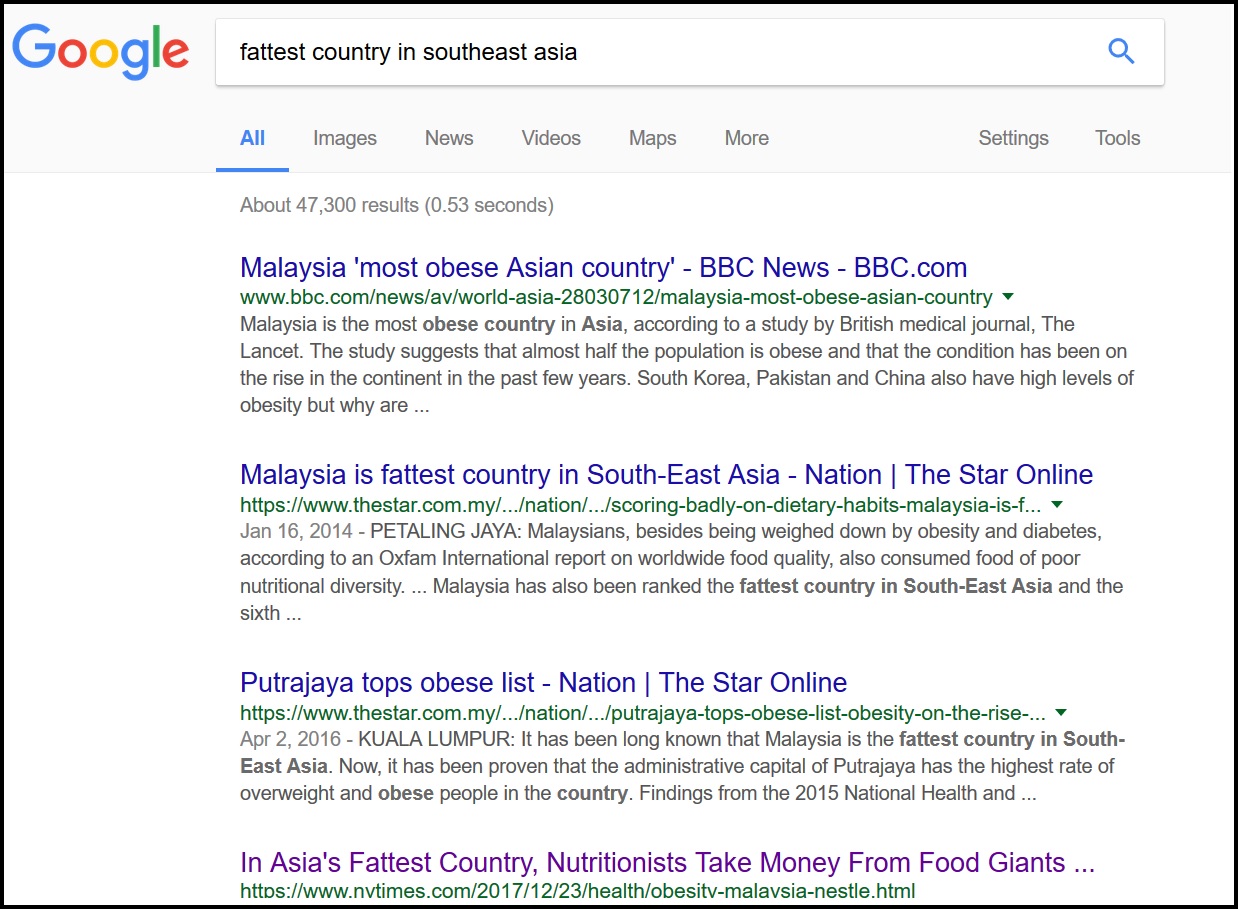
Now put your hand on your belly. Chances are, 38.5 per cent of you will be overweight and touch some flab, while another 13.3 per cent of your hands will sink right into your fat because you’re obese. If you break your fingers on your rock-hard abs while reading this, well good for you.
Anyway, the concern with being fat is less about looking like an underwear model and more towards health. We know that some fat people, like Sammo Hung, are healthy and can do backflips at the drop of a hat.

But for the rest of us Fei Maos, carrying blubber can increase the risk of serious health problems, like hypertension (high blood pressure), heart disease and diabetes. These diseases and others like cancer, respiratory diseases and anything that you can’t catch from another person are known as non-communicable diseases (NCDs).
Even though they don’t spread from person to person, 73% of total deaths in Malaysia are caused by NCDs. That is to say, roughly, that in a room with 10 Malaysians, seven of them will die from either diabetes, a heart attack or high blood pressure.
The government had been spending a lot of money on treating these diseases. Like, somewhere between RM4 and 8 billion, which is roughly equal to 10 to 19 per cent of our total healthcare spending, or four brand new Boeing 747-8s. We also lost the most number of productive years because of obesity, which is when obese people got sick and had to be hospitalized.

So somewhere along the line the government presumably flipped its table and screamed “Enough is enough!”, realized that it had no policies in place to combat NCDs and came up with some new ones to combat this problem. 13 of them, to be exact. They are:
- Limiting the operating hours of places that sell food to midnight.
- Taxing sweet drinks.
- Taking away the import duties for sports gear.
- Offering tax exemption to places that encourage sports, like gyms and private pools.
- Risk of NCDs will now be taken into account when hiring, promoting and evaluating gomen servants.
- Banning ads that push fatty, salty and sugary foods.
- New housing areas will have to build bicycle lanes.
- Provide better health screening activities, and in more ways.
- Hiking areas that haven’t been gazetted yet will be gazetted.
- Cultivating the habit of eating more plants among Malaysians.
- Clamping down even harder on illegal cigarettes.
- Conducting mQuit programs (a program to stop smoking) in universities.
- Carrying out more campaigns that focus on NCDs.
If you’ve breezed through the list without actually reading it, here’s a simple summary of what you can expect. Less food ads, sports will be cheaper, sweet drinks will become expensive, more campaigns on healthy living, illegal cigarettes will be harder to find, probably more cyclists on the road, and no more places to dabao food after midnight.
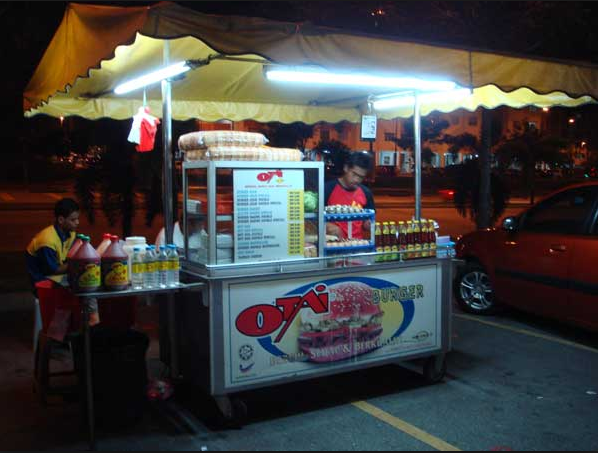
That would mean no more 24-hour mamak stalls. How can they government even think of such a thing? Apparently, it’s not hard to link 24-hour eateries with a lot of problems, as…
This isn’t the first time 24-hour mamak stalls are in danger of becoming 18-hour mamak stalls
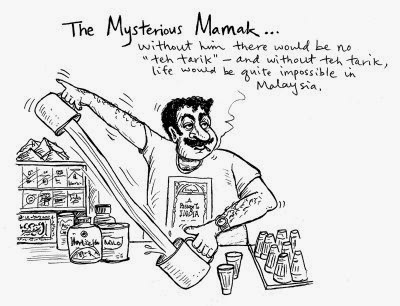
As fans of the mamak might remember it, back in 2015 Datuk Seri Shahidan Kassim, a minister in the Prime Minister’s Department proposed for 24-hour mamak stalls and hawker centers to be closed after midnight, but for an entirely different reason: instead of curbing obesity through late-night snacking, the proposal was meant to curb social ills. Because everybody knows that mamak stalls are writhing cesspools of villainy and depravity.
“Malaysia is perhaps the only country in the world where one can find eateries and restaurants open 24 hours. But it’s different here due to the presence of many who require the services of this industry, such as tourists, foreign migrants and so on. The leeway has contributed to social ills. There are concerns that the young spend too much idle time in such places and get involved in unhealthy activities,” – Datuk Seri Shahidan Kassim, for the Star.
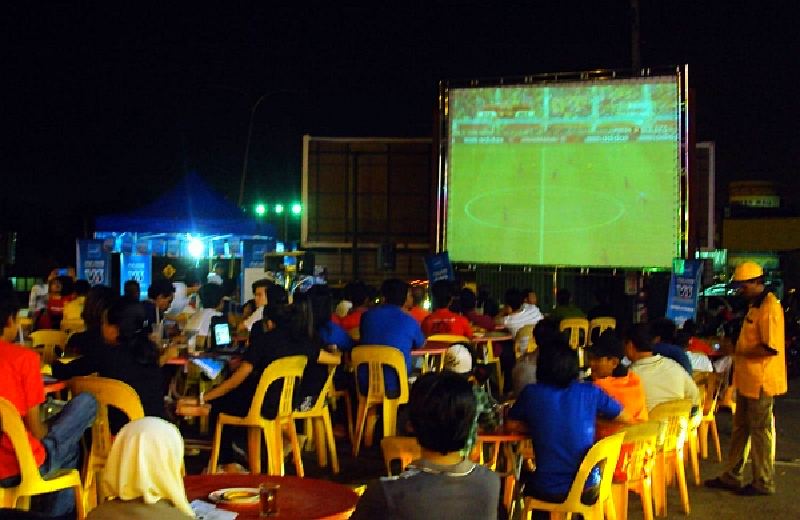
But Malaysians did not take this lying down, because we want our nasi goreng ayams at 3 in the morning, dammit! So both mamaks and their customers raised an outcry for several days following that announcement, until Prime Minister Najib Razak finally announced that mamaks can stay open all night if they want.
“Those who own businesses that open 24 hours will receive their rezeki (good fortune) from the business. If we restrict the hours, it will cause inconvenience to many people,” – Datuk Seri Najib Tun Razak, for the Star.
And the mamaks and their customers lived happily ever after, but a dark figure looms in the distance…
24-hour eateries, like mamak stalls, again risk closing down

Fast forward to two years in the future, and mamak stalls face another threat of closure (after midnight, anyway), this time from the Health Minister.
Syed Ibrahim Kader, the president of the Malaysian Indian Muslim Congress (Kimma), had stated his disagreement with this proposed policy. According to him, mamaks are popular hangs for students, who use the Wi-Fi to do their assignments and hold discussions.
“If mamak outlets can only operate until midnight, where will the students go? For Muslim students, are they going to go to a friend’s house with boys and girls mingling around (in an enclosed space) unchaperoned?” – Syed Ibrahim Kader, for FMT.
Besides the possibility of our youth doing the hanky-panky unsupervised in their own homes, Syed is also concerned that closing mamaks after midnight will affect tourism, as according to him tourists are impressed by the availability of world-famous Malaysian food 24/7.

Dr. Jacob George, the president of Subang and Shah Alam’s Consumers Association (Casa), had pointed out that not everyone works during the day, and closing mamaks after midnight will impact those who work at night. He also criticized the Health Ministry’s new policies, as he alleged that they were made without proper studies or discussions with related bodies, associations or ministries. We’ll get to that later.
“When you limit restaurants’ operating hours, you are impacting on their business. When you make policy decisions which can disrupt economic activities, you are inviting trouble and public resentment. ” – Dr Jacob George, for FMT.
We may or may not see the second coming of Datuk Seri Najib as the savior of 24-hour mamak stalls, but…
Can eating at night really make you fat?
“Eat breakfast like a king, lunch like a prince, and dinner like a pauper,” – Adelle Davis, a famous nutritionist.
Some of us may have heard that quote in the journey to lose weight (or keep a slim figure). Basically, it means that you need to eat more in the morning and less at night, and had nothing to do with a king’s diet of tea and crumpets. In a way, this makes sense as you need more energy in the morning and less right before sleep. Whether or not a government policy came from a saying is not our concern, but will eating at a mamak after hours contribute to weight gain?

For starters, a research by the Americal Journal of Clinical Nutrition found that night eaters do gain more weight, but due to study limitations you can’t tell whether it’s because they eat at night or because they eat an extra meal compared to non-night eaters. You can say that they gained weight because they eat at night, but you can also say they gain weight because they eat more.
According to a study in the Journal of the American College of Nutrition, however, you may actually lose weight by eating at night, depending on what you eat. In this study, some night snackers were given cereal and low-fat milk an hour and a half after their dinners, and it was found that they lose more weight than participants who didn’t snack. A British Journal of Nutrition study, on the other hand, found that participants who drank some protein before going to bed will burn more energy (read: fat) the next morning, even when resting, as well as having their desire to eat reduced.
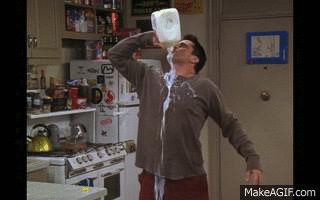
However, a study published by the American Journal of Physiology found that snacking at night (11 p.m.) reduced fat oxidation in the participants and increased their cholesterol, particularly LDL cholesterol (the bad one), compared to participants who ate the same snack during the day (10 a.m.). This suggests that eating at night, due to the way the human body works, actually increases the risk of obesity regardless of the total amount you eat. However, during the study’s short duration (2 weeks), no actual weight gain was recorded.
While nutrition sites are divided on the issue, from these studies we can conclude that yes, three pieces of roti canai with mutton curry and teh tarik late at night will definitely make you fat. However, eating the right things before bed may make you lose weight, but those things may not be available at your local mamak.
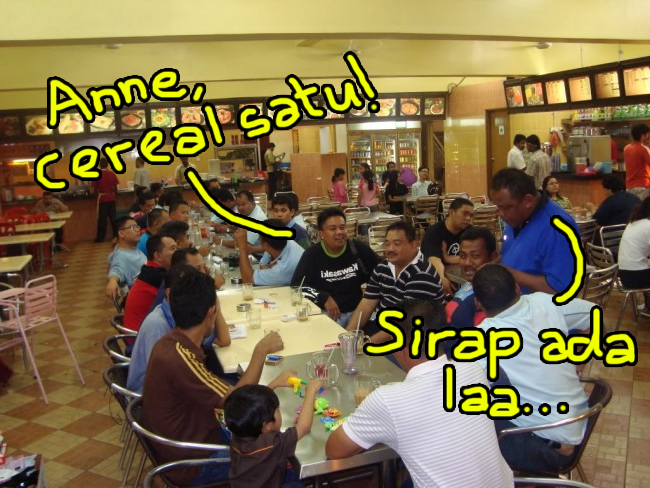
Not sure if paupers drink protein shakes or have cereal, but hey. It’s true! Perhaps that’s why…
These new policies might be a good thing after all, but there are still several problems with them
As it turned out, not everyone is against the man clamping down on 24-hour eateries. Datuk Dr Marimuthu Nadason, the president of the Federation of Malaysian Consumer Associations (Fomca), for one, supports the efforts of the government to reduce the incidence of NCDs in Malaysia. With the current lifestyle of Malaysians leading to obesity and other related health problems, he praises policies such as limiting the operating hours of 24-hour eateries, food advertisements and taxing sweet drinks, saying that enforcing them is a bold but necessary decision.
“Prevention is better than cure and this is a good initiative, making people start with the government’s nudge… If the government do not take actions now, it will be a burden in the future as the younger generation will keep falling sick and this could affect the country’s productivity,” – Datuk Dr Marimuthu Nadason, for the New Straits Times.
While Marimuthu admitted that a person’s health is their own business, he feels that the government is also responsible for the health of the people, and they can do that by providing suitable health policies for the masses.
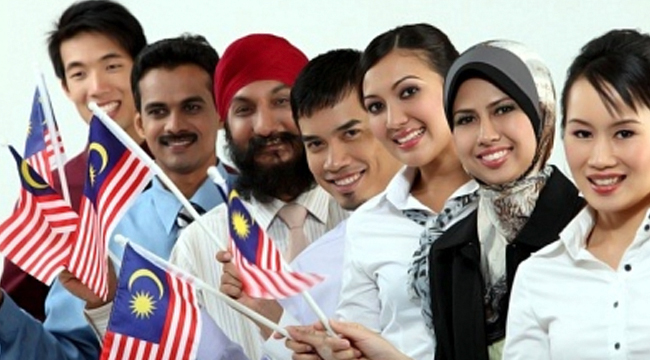
SM Mohamed Idris, president of the Penang’s Consumer Association (CAP) said that closing restaurants early is a good idea on the government’s behalf, as the people do not know themselves the right time to eat. Like, these people be crazy, eating whenever they want and stuff.
“If they eat late at midnight, they are likely to skip breakfast the next day which is not good for them,” – SM Mohamed Idris, for FMT.
But that’s not to say that the policies are without problems. There are others who have commended the policies, but also have a few qualms about them. Datuk Azih Musa, of Cuepacs, welcomed the policies to keep people healthy but felt that it’s unreasonable to base a civil servant’s career development based on their health (see #5, above). He pointed out that many in the Health Ministry are looking unhealthy and unfit, and he requested that the ministry start within the ministry first before applying it to everyone in the service.

Datuk Wan Hashimi Albakri, of Rehda and Sime Darby Property Bhd, also welcomed the Health Ministry’s policies, particularly ones that lead to a ‘green neighborhood’ (#7, bicycle lanes for new housing areas), but he questioned whether medium and small-sized developers are willing to implement it, due to their budget constraints.
And herein lies the problem of the policies: according to Datuk Azih Musa, Datuk Wan Hashimi and Dr. Jacob from earlier, they are drawn up without consulting the people affected, i.e. the stakeholders. While these policies are still in the planning stages, their announcement caught many people by surprise, and not all pleasantly. Unless the Health Ministry are to meet the stakeholders and address the shortcomings of the policies together soon, whole industries may be affected.
In the meantime, perhaps it would do all of us well to savor our right to have piping hot roti planta right before bed, because we may soon have to eat it in the mornings only, like some kind of functional member of society or something.
- 5.0KShares
- Facebook4.8K
- Twitter19
- LinkedIn30
- Email54
- WhatsApp128

